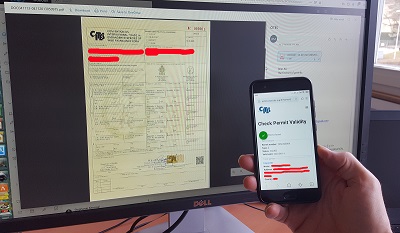Electronic solution will enable better control of legal trade in wildlife and help prevent illegal trade.
Sri Lanka has enhanced its management of wildlife trade by becoming the first country to go live with an electronic permit system developed by UNCTAD and the Convention in International Trade in Endangered Species of Wild Fauna and Flora (CITES).
The country’s Department of Wildlife Conservation (DWC) rolled out the system dubbed “eCITES BaseSolution” on 14 February to better control legal trade of CITES-listed species and help prevent illegal trade. The system issued its first-ever eCITES permit after it went live.
“The live implementation of the eCITES permitting solution developed jointly by the CITES Secretariat and UNCTAD, and tailored to DWC needs, marks an important step in the department’s efforts to improve its operations in compliance with its international obligations” said Chandana Sooriyabandara, director general of the Sri Lankan authority.
Switzerland funded the joint development of the solution by the CITES Secretariat and UNCTAD’s customs automation programme, ASYCUDA.
It is a cost-effective system for interested national management authorities to manage and regulate legal trade of CITES-listed species.
“The solution makes a significant contribution to our global collective efforts to combat illegal trade in wildlife, especially for parties that do not have access to electronic permit management systems,” said Shamika N. Sirimanne, UNCTAD’s director of technology and logistics.
CITES head Ivonne Higuero said: “We hope this tool will strengthen Sri Lanka’s work in issuing and reporting CITES permits, minimizing human error and improving the connection with different authorities at the national level, leading to a more effective implementation of the CITES regulatory framework.”
The cloud-based system improves countries’ capacity to control legal trade of CITES-listed species and thus contributes to identifying and preventing illegal trade.
Tailored to needs
Its roll-out in Sri Lanka took place under a technical assistance project between DWC and UNCTAD. It involved tailoring the solution to DWC’s needs, rules, regulations and configuring the system’s eReporting module.
It also entailed augmenting the system to include an interface for payment, electronic risk management and targeted controls. DWC then tested and accepted the system.
Then UNCTAD conducted a train-the-trainers knowledge transfer and skills reinforcement session in Kuala Lumpur, Malaysia, in January, for DWC trainers, who in turn trained other stakeholders in Sri Lanka.
Automated support
The system offers automated support for CITES permit application, processing, issuance and annual reporting.
It allows faster and more robust reporting by authorities, provides better data to decide on non-detriment findings and enables government agencies to better target their inspections and identify actors that break the law.
Also, it facilitates the exchange of electronic permits and information across borders, which increases transparency and prevents the use of fraudulent permits.
The solution improves collaboration between international and national agencies in implementing CITES provisions.
It can be implemented in other countries through a technical assistance agreement between UNCTAD and the beneficiary country.


